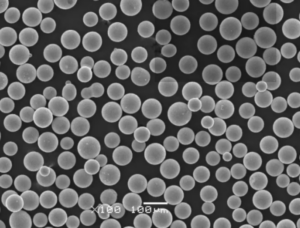航空宇宙、バイオメディカル、自動車などの産業における先端材料といえば、チタン合金がスポットライトを浴びることが多い。その中でも チタン合金 Ti64Ti-6Al-4Vとしても知られるTi64はスーパースターだ。しかし、なぜTi64がそれほど特別なのか?なぜTi64は多くの高性能用途で使用されているのでしょうか?その詳細と、この魅力的な合金の裏側を探ってみよう。
チタン合金Ti64の概要
チタン合金Ti64、またはTi-6Al-4Vは、6%のアルミニウムと4%のバナジウムから成るチタン合金です。この特殊な組成が、この合金の驚くべき強度、軽量特性、優れた耐食性を生み出しています。航空機部品、医療用インプラント、高性能自動車部品など、Ti64は最も重要な部分に卓越した性能を発揮する素材です。
チタン合金Ti64の主成分
Ti64がこれほど人気がある理由のひとつは、その注意深くバランスの取れた組成にある。この合金を構成しているものを詳しく見てみよう:
| エレメント | 構成比(%) |
|---|---|
| チタン(Ti) | 89-90% |
| アルミニウム(Al) | 6% |
| バナジウム (V) | 4% |
| 酸素 (O) | 0.2%(最大) |
| 鉄(Fe) | 0.3%(最大) |
| カーボン(C) | 0.08%(最大) |
| 窒素(N) | 0.05%(最大) |
| 水素 (H) | 0.015%(最大) |
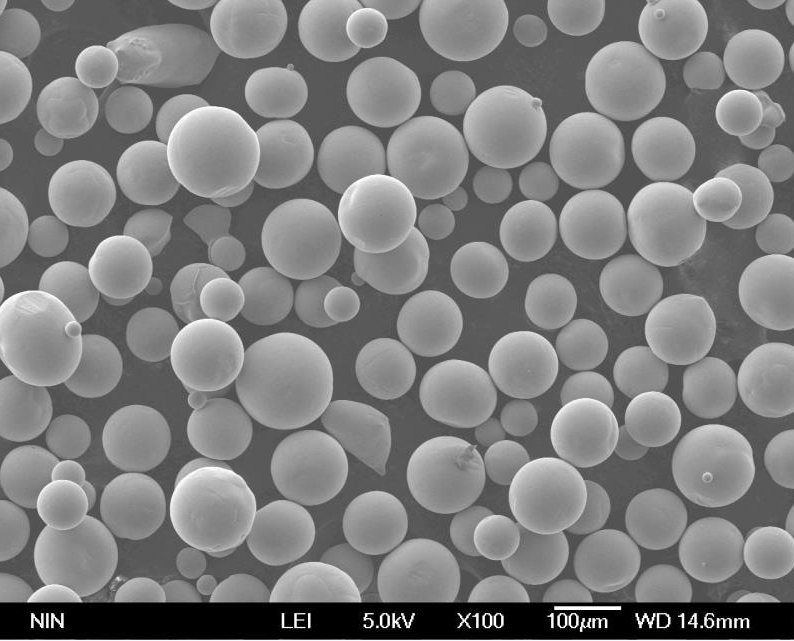
チタン合金Ti64の特徴
Ti64を際立たせているのは、その組成だけでなく、優れた特性にもある。この合金が高性能用途で好まれている理由を探ってみよう:
- 高い強度重量比:Ti64は重量の割に非常に強く、強度と軽さの両方が重要な用途に最適です。
- 優れた耐食性:チタン含有量が高いため、Ti64は海水や過酷な化学環境など、ほとんどの環境で腐食に耐える。
- 優れた耐疲労性:Ti64は、大きな摩耗を伴うことなく繰り返し応力に耐えることができるため、航空機部品のような繰り返し荷重を受ける部品に最適です。
- 生体適合性:この合金は生体適合性があり、人工関節や歯科インプラントなどの医療用インプラントに使用しても安全です。
詳細特性 チタン合金 Ti64
以下は、チタン合金Ti64の本質的な特性であり、様々な産業においてその価値を高めている:
| プロパティ | 価値 |
|---|---|
| 密度 | 4.43 g/cm³ |
| 引張強度 | 895MPa(最低) |
| 降伏強度 | 828 MPa(最小) |
| 伸び | 10% |
| 弾性係数 | 110 GPa |
| 硬度(ロックウェルC) | 36 HRC |
| 熱伝導率 | 7.2 W/m-K |
| 融点 | 1,660度C(3,020度F) |
| 膨張係数 | 8.6 µm/m-K |
チタン合金Ti64の用途
その印象的な特性を考えれば、Ti64が幅広い産業分野で応用されているのも当然である。ここでは、Ti64が使用されている主な分野をいくつか紹介する:
| 産業 | 申し込み | 使用理由 |
|---|---|---|
| 航空宇宙 | 航空機構造部品、着陸装置 | 高い強度対重量比、耐疲労性 |
| 自動車 | 高性能エンジン部品、排気システム | 耐食性、軽量化のメリット |
| バイオメディカル | 股関節および膝関節インプラント、歯科インプラント | 生体適合性、耐食性 |
| マリン | プロペラ、船体部品、海洋掘削装置 | 海水中での優れた耐食性 |
| 化学処理 | 熱交換器、圧力容器 | 腐食環境に対する耐性、高温での強度 |
| スポーツ用品 | 自転車フレーム、ゴルフクラブヘッド、テニスラケット | 軽量、高強度、耐久性 |
チタン合金Ti64のグレードと規格
Ti64を使用する際には、適用される特定の等級と規格を知ることが不可欠です。これらは、材料がさまざまな用途で要求される性能基準を満たしていることを保証するのに役立ちます。
| グレード | スタンダード | 仕様 | 一般的な使用 |
|---|---|---|---|
| グレード5 | ASMB348、AMS4928 | 航空宇宙および医療分野で広く使用されている一般的なグレード | 航空宇宙、医療用インプラント、高性能スポーツ機器 |
| グレード23(ELI) | アストレムF136、アムス2631 | 靭性を高める超低間充てんグレード | 生体適合性を必要とするバイオメディカル用途 |
| 9年生 | ASTM B265 | Ti-3Al-2.5V、より低いアルミニウム含有量、より良い成形性 | 高圧配管、スポーツ用品 |
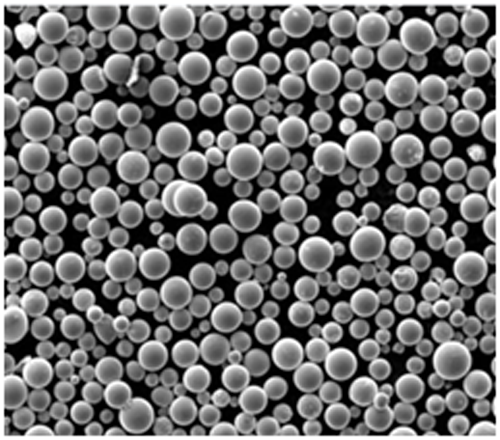


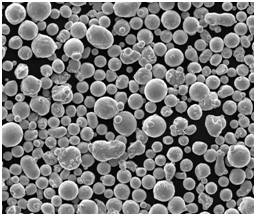
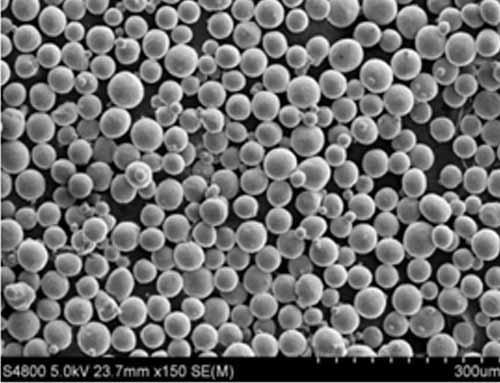
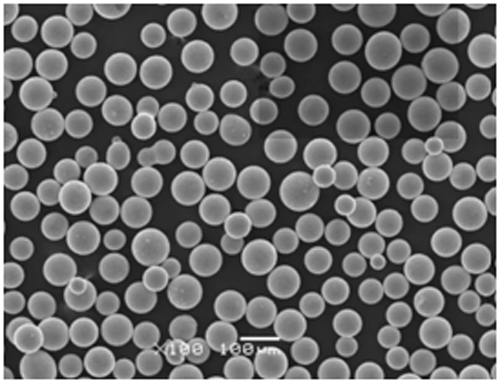
のメリットとデメリット チタン合金 Ti64
プロジェクトでTi64を使用するかどうかを決める際には、長所と短所を比較検討することが重要です。以下はその内訳である:
| メリット | デメリット |
|---|---|
| 高い強度対重量比 | スチールやアルミニウムなど他の素材に比べ高価 |
| 優れた耐食性 | 機械加工が難しく、特殊な工具と技術が必要 |
| 生体適合性 | 地域によっては利用できない |
| 高温でも低温でも優れた性能を発揮 | かじりやすく、特に類似素材との接触に弱い。 |
| 幅広い用途に対応する汎用性 | 適切な技術がなければ溶接性は限定的 |
特定のチタン合金Ti64金属粉末モデルを理解する
3Dプリンティングや粉末冶金に興味のある方にとって、チタン合金Ti64の特定の金属粉末モデルを理解することは不可欠です。ここでは、市場で入手可能な一般的なモデルを、それぞれユニークな特性と用途を持つリストとしてご紹介します:
| モデル名 | メーカー | 粒子径範囲 | 申し込み | 特集 |
|---|---|---|---|---|
| Ti64-G23 | カーペンター添加剤 | 15-45 µm | バイオメディカル、歯科インプラント | より優れた生体親和性のための超低間充織(ELI) |
| Ti64 ELI 50 | AP&C | 20-50 µm | 航空宇宙部品、医療機器 | 安定した品質の高純度球状粒子 |
| Ti64-グレード5 | イーオーエス | 20-63 µm | 航空宇宙、自動車、工業部品 | 優れた機械的特性を持つ多目的パウダー |
| Ti64-1100 | プラクセア・サーフェス・テクノロジー | 15-53 µm | 積層造形、複雑形状 | きめ細かな印刷のための微細な粒子径 |
| Ti64チタンパウダー | レニショー | 15-45 µm | 医療、航空宇宙、工業用途 | 高い流動性、優れた層均一性 |
| Ti64-25 | テクナ | 25-50 µm | 高強度用途、重要部品 | 安定した粒度分布、高密度 |
| Ti64-Al-4Vパウダー | エリコン・メトコ | 20-60 µm | 航空宇宙、自動車、工業 | 粒子径を制御し、均一な品質を実現 |
| Ti64-130 | GKNアディティブ | 15-53 µm | 医療用インプラント、航空宇宙部品 | 高い生体適合性、一貫した粒子形態 |
| Ti64-ELI | アルカム(GEアディティブ) | 15-45 µm | 外科的インプラント、歯科修復 | 優れた靭性と生体適合性を持つELIグレード |
| Ti64-FN | LPWテクノロジー | 10-45 µm | 高性能航空宇宙部品 | ファインパウダーで複雑なディテールを表現し、表面仕上げを強化 |
他の材料に対するチタン合金Ti64の利点
では、なぜスチールやアルミニウムといった他の素材ではなくTi64を選ぶのか、その理由について説明しよう:
- より優れた強度対重量比:鋼鉄と比較して、Ti64は優れた強度対重量比を提供し、より少ない材料で同じ(またはそれ以上)の強度を得ることができます。そのため、航空宇宙のような重量が重視される用途に最適です。
- 耐食性:過酷な環境で腐食する可能性のあるアルミニウムとは異なり、Ti64は海水や酸性環境を含むさまざまな条件に耐えるため、耐久性が高く長持ちします。
- 温度性能:Ti64は高温でも低温でも機械的特性を維持するため、高温で弱くなるアルミニウムのような材料に比べて汎用性が高い。
仕事における課題 チタン合金 Ti64
もちろん、Ti64に課題がないわけではありません。ここでは、この合金を扱う際に直面する一般的な難題をいくつか紹介する:
- 加工性:Ti64は加工が難しいことで知られている。強度が高く、熱伝導率が低いため、工具の摩耗が早い。Ti64を効果的に加工するには、特殊な技術と設備が必要になることが多い。
- コスト:Ti64は、アルミニウムや鋼などの他の多くの材料よりも高価である。このコストは、特定の用途にこの合金を使用するかどうかを決定する際の重要な要因となり得る。
- 溶接性:Ti64の溶接では、割れや気孔の発生といった問題を避けるため、工程を注意深く管理する必要がある。溶接を成功させるには、適切な溶加材を使用し、清潔で管理された環境を確保することが不可欠です。
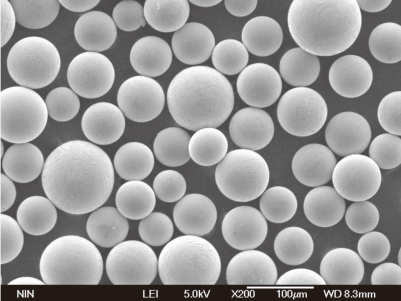
よくある質問
ここでは、チタン合金Ti64に関するよくある質問を簡単にFAQとしてご紹介します:
| 質問 | 回答 |
|---|---|
| チタン合金Ti64とは? | Ti64は6%のアルミニウムと4%のバナジウムを含むチタン合金で、高い強度と耐食性で知られている。 |
| Ti64はどこでよく使われているのですか? | Ti64は、航空宇宙、生物医学、自動車、海洋産業で広く使用されている。 |
| Ti64は生体適合性がありますか? | はい、Ti64は生体適合性があり、医療用インプラントによく使われています。 |
| Ti64を加工する上での課題は何ですか? | Ti64の加工は、その強度と熱伝導率の低さゆえに難しく、特殊な工具と技術を必要とする。 |
| Ti64とスチールの比較は? | Ti64は強度重量比に優れ、耐食性にも優れるが、高価で加工が難しい。 |
これは、手始めの最初の一節に過ぎない。完全な記事では、これらの各セクションをさらに詳しく、特にTi64と他の素材との比較、用途のケーススタディ、さまざまなグレードの詳細な仕様、製造工程と課題に関するより深い探求へと発展させるだろう。
